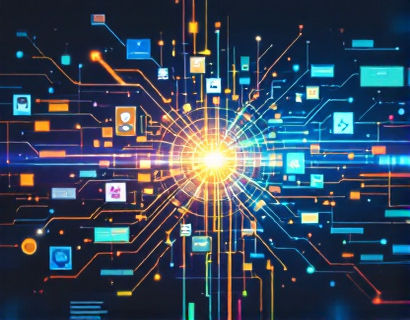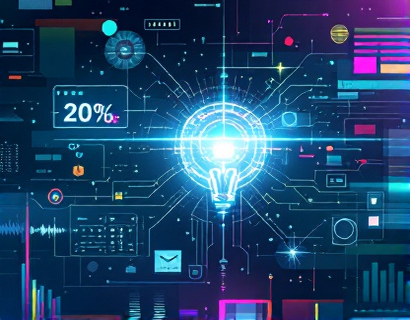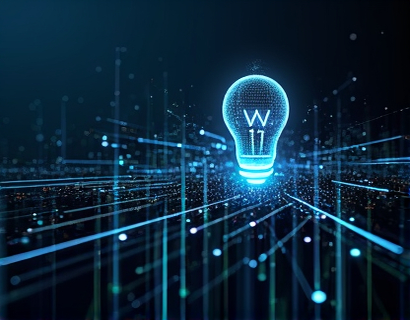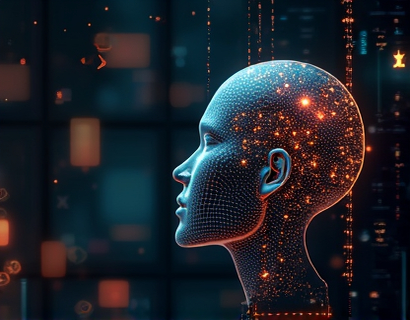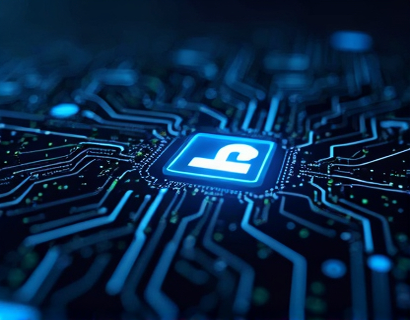Unlocking Enhanced Digital Experiences Through the Synergy of Crypto and AI
The intersection of cryptocurrency and artificial intelligence (AI) is paving the way for transformative digital experiences. This convergence is not just a technological curiosity but a powerful force driving unprecedented user engagement and growth across the tech sector. As we delve into the latest innovations and trends, it becomes clear that the synergy between these two domains is reshaping how we interact with digital platforms and services.
The integration of blockchain technology with AI is creating new paradigms in data security, transparency, and efficiency. Blockchain's inherent properties, such as immutability and decentralization, complement AI's capabilities in data processing and machine learning. This combination is leading to more robust and trustworthy systems that can handle complex tasks with greater accuracy and speed.
Enhanced Data Security and Privacy
One of the most significant benefits of combining crypto and AI is the enhancement of data security and privacy. Traditional data storage and processing methods are vulnerable to breaches and manipulation. By leveraging blockchain, sensitive data can be stored in a decentralized manner, reducing the risk of centralized points of failure. AI algorithms can further secure this data by detecting and mitigating anomalies in real-time, ensuring that only authorized access is granted.
For instance, AI-driven encryption methods can adapt to new threats dynamically, providing a layer of security that evolves with the ever-changing landscape of cyber threats. This not only protects user data but also builds trust in digital platforms, encouraging more users to adopt and engage with these services.
Optimized User Engagement through Personalization
AI's strength lies in its ability to analyze vast amounts of data to deliver personalized experiences. When combined with the transparency and ownership features of cryptocurrency, user engagement reaches new heights. Blockchain-based identity verification ensures that user data is managed securely and privately, while AI algorithms tailor content and services to individual preferences.
This personalized approach not only enhances user satisfaction but also increases retention rates. Users are more likely to interact with platforms that understand and cater to their unique needs and interests. The synergy between crypto and AI thus creates a virtuous cycle of engagement and growth, benefiting both users and service providers.
Decentralized AI Marketplaces
The emergence of decentralized AI marketplaces is a groundbreaking development facilitated by the convergence of crypto and AI. These platforms allow developers and data providers to monetize their AI models and datasets using cryptocurrencies, creating a new economy for digital assets. This decentralized approach democratizes access to AI technologies, enabling a broader range of participants to contribute and benefit from advancements in the field.
Decentralized AI marketplaces also promote innovation by removing barriers to entry. Smaller developers and startups can compete on a level playing field, fostering a diverse ecosystem of AI solutions. The use of smart contracts ensures transparent and secure transactions, further enhancing trust and reliability in these platforms.
Improved Efficiency in Data Processing
AI algorithms require substantial computational power to process and analyze large datasets. Traditional cloud computing solutions can be expensive and less efficient. Blockchain-based solutions, particularly those utilizing edge computing and decentralized networks, offer a more efficient alternative. By distributing computational tasks across a network of nodes, these systems can process data faster and at a lower cost.
Moreover, the use of cryptocurrencies as a medium of exchange in these decentralized networks eliminates the need for intermediaries, reducing transaction fees and increasing transaction speeds. This efficiency not only benefits the performance of AI applications but also makes them more accessible and affordable for a wider audience.
Transparent and Fair AI Governance
The integration of blockchain technology brings a new level of transparency and fairness to AI governance. Decentralized autonomous organizations (DAOs) can be established to manage AI systems, ensuring that decision-making processes are transparent and accountable. Smart contracts can automate governance rules, such as data usage policies and algorithmic fairness, reducing the risk of bias and misuse.
This transparent governance model empowers users by giving them a say in how AI systems are developed and deployed. It also holds developers accountable, fostering a more ethical and responsible approach to AI innovation. The combination of crypto and AI thus promotes a balanced and equitable digital ecosystem.
Innovative Financial Models for AI Development
The crypto space offers innovative financial models that can significantly impact AI development and deployment. Initial Coin Offerings (ICOs) and Initial Dex Offerings (IDOs) provide alternative funding routes for AI startups, bypassing traditional venture capital routes. These token-based funding models allow for community-driven support and incentivize early adopters, creating a strong foundation for new projects.
Furthermore, the use of utility tokens can facilitate the monetization of AI services on decentralized platforms. Users can purchase tokens to access AI-powered tools and applications, creating a sustainable revenue stream for developers. This model not only supports the growth of AI technologies but also aligns the interests of users and developers, fostering a collaborative and thriving ecosystem.
Challenges and Considerations
While the synergy between crypto and AI holds immense potential, it is essential to acknowledge the challenges and considerations involved. Regulatory uncertainty remains a significant hurdle, as governments worldwide grapple with how to address the unique aspects of blockchain and AI. Compliance with data protection laws, such as GDPR, is crucial to ensure that user privacy is maintained.
Technical challenges, such as scalability and interoperability, also need to be addressed to fully realize the benefits of this convergence. The development of more efficient consensus mechanisms and cross-chain solutions is vital to support the growing demand for decentralized AI applications. Additionally, the environmental impact of blockchain, particularly proof-of-work systems, must be considered and mitigated through more sustainable practices.
Future Outlook
Looking ahead, the integration of crypto and AI is poised to revolutionize various sectors, from healthcare and finance to entertainment and education. The continued advancement of blockchain technology and AI will lead to more sophisticated and seamless digital experiences. As the ecosystem matures, we can expect to see more innovative applications and services that leverage the strengths of both domains.
The future also holds the promise of greater collaboration between tech companies, researchers, and regulatory bodies to create a balanced and inclusive digital landscape. By addressing the current challenges and embracing the opportunities, we can unlock a new era of digital innovation that benefits society as a whole.







